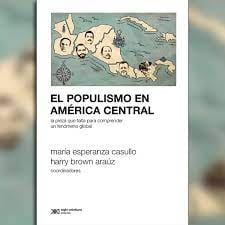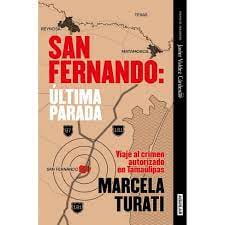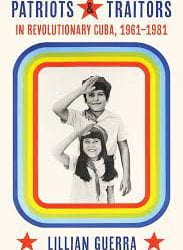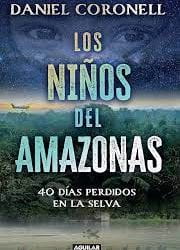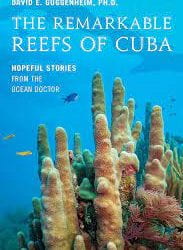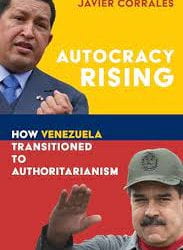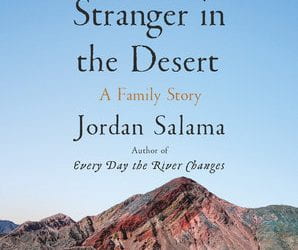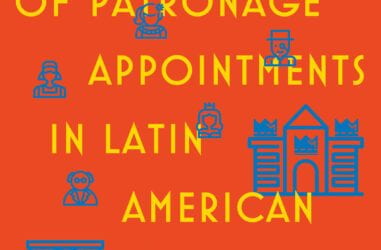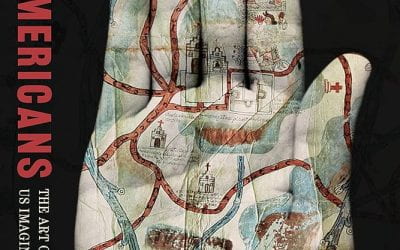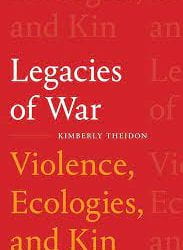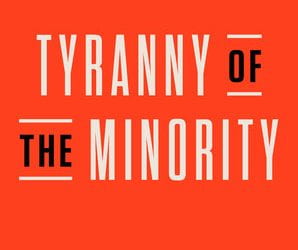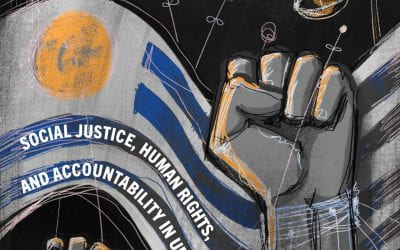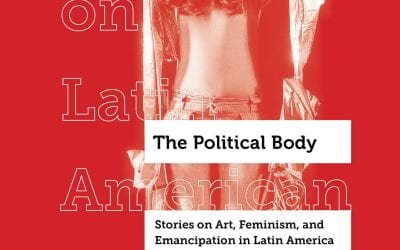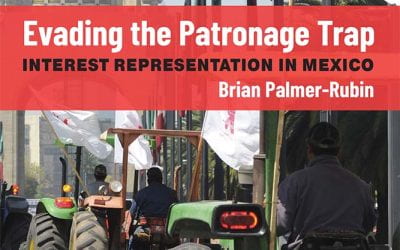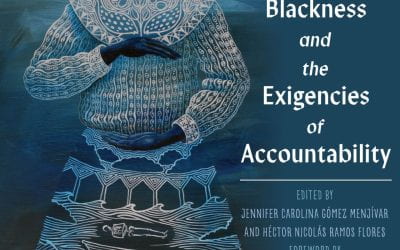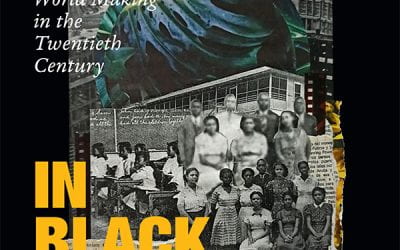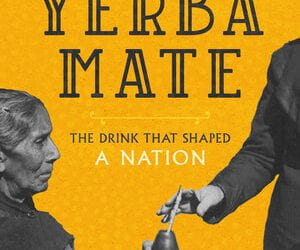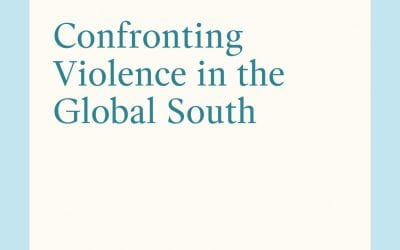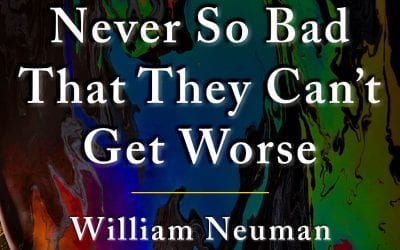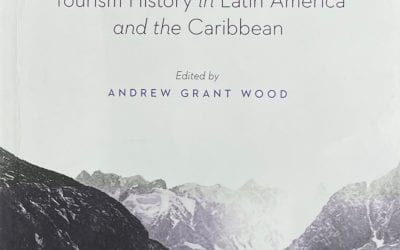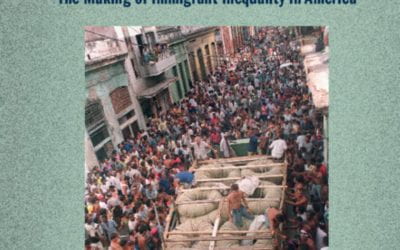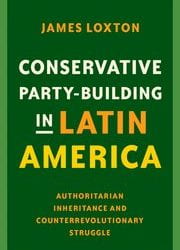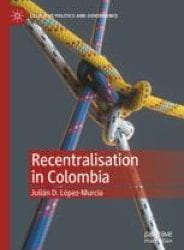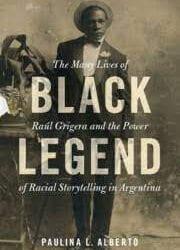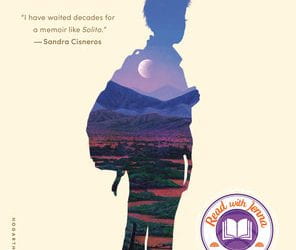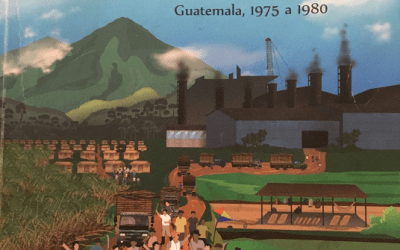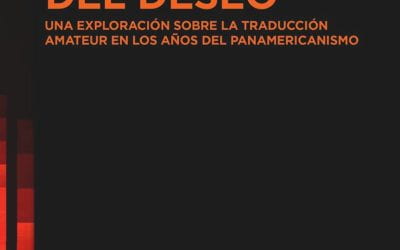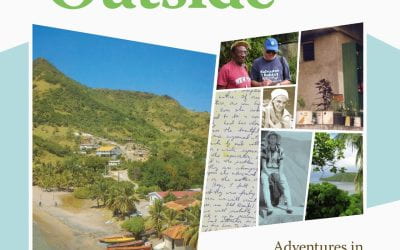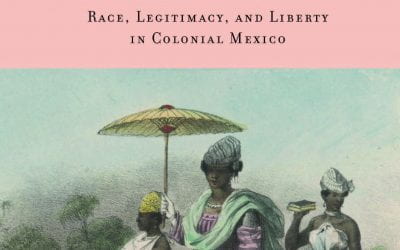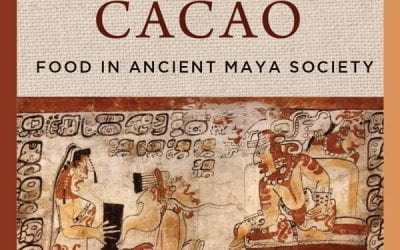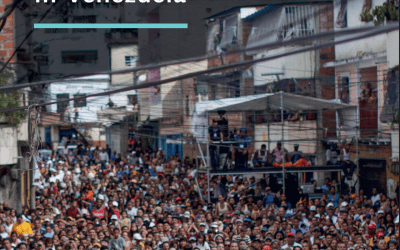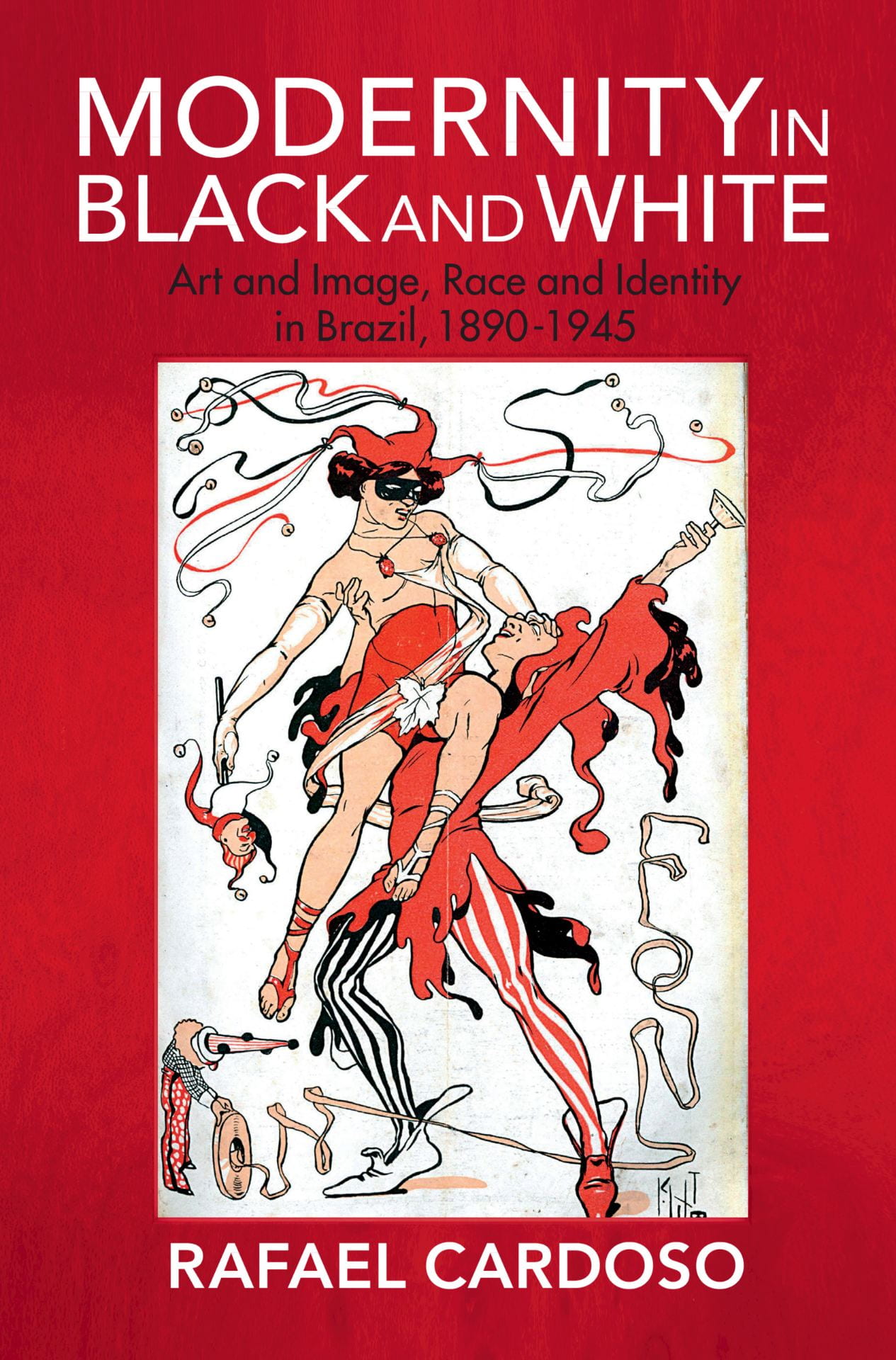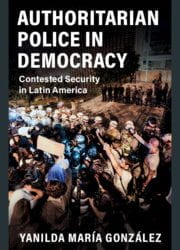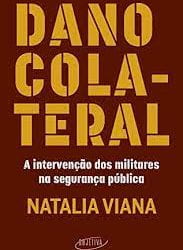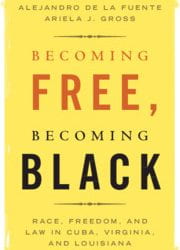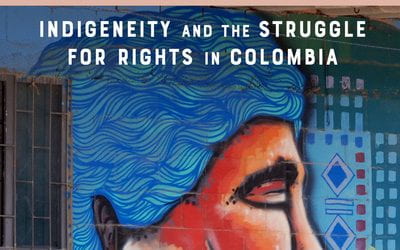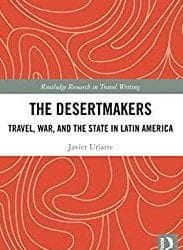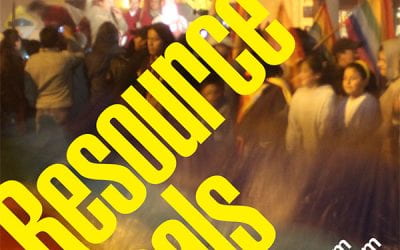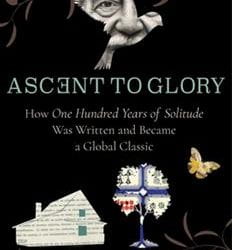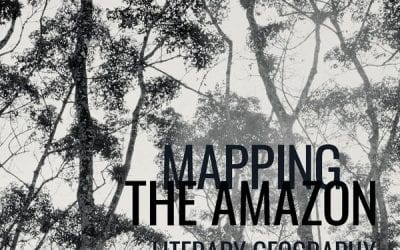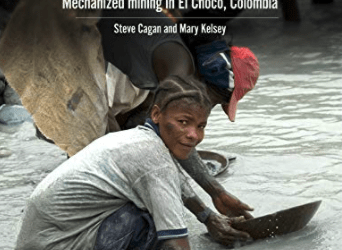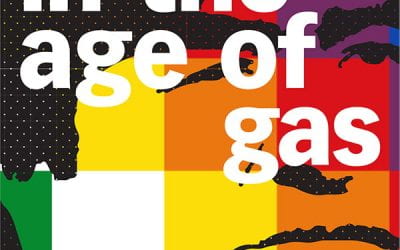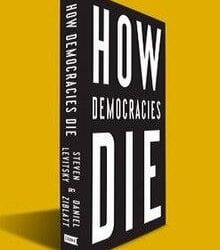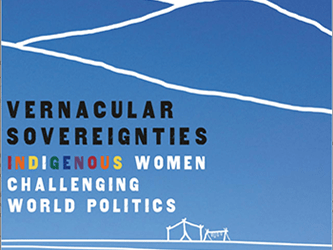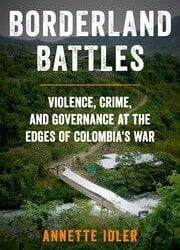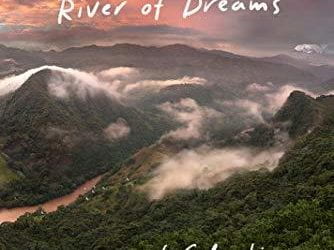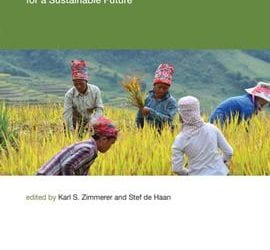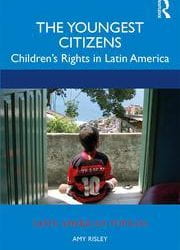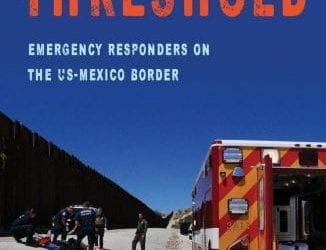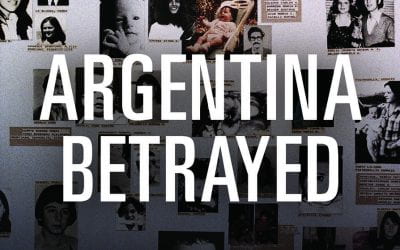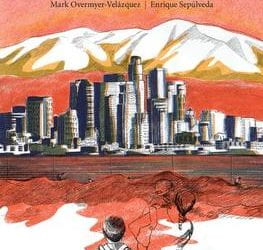The new ReVista book review section features reviews of recent books about Latin America, the Caribbean and the Latinx community in all disciplines.
A Review of Born in Blood and Fire
The fourth edition of Born in Blood and Fire is a concise yet comprehensive account of the intriguing history of Latin America and will be followed this year by a fifth edition.
A Review of El populismo en América Latina. La pieza que falta para comprender un fenómeno global
In 1946, during a campaign event in Argentina, then-candidate for president Juan Domingo Perón formulated a slogan, “Braden or Perón,” with which he could effectively discredit his opponents and position himself as a defender of national dignity against a foreign power.
A Review of Aaron Copland in Latin America: Music and Cultural Politics
In Aaron Copland in Latin America: Music and Cultural Politics, Carol Hess provides a nuanced exploration of the Brooklyn-born composer and conductor Aaron Copland (1900–1990), who served as a cultural diplomat in Latin America during multiple tours.
A Review of San Fernando: Última Parada, Viaje al crimen autorizado en Tamaulipas
One of Mexico’s best investigative journalists, Marcela Turati, takes readers to terrorized and traumatized San Fernando, a town known for dozens of mass graves, and exposes the depths of criminal brutality and official corruption that hid the bodies and the truth for years.
A Review of Until I Find You: Disappeared Children and Coercive Adoptions in Guatemala
A student in my “Introduction to Cultural Anthropology” course at the University of Delaware approached me several weeks ago, after hearing about my long-term research in Guatemalan communities, to tell me that they were born there, in Guatemala.
A Review of Default: The Landmark Court Battle over Argentina’s $100 Billion Debt Restructuring
In February 2019, I found myself serving as the special attorney general for the then newly recognized interim government of Venezuela, tasked with addressing more than 50 claims before the U.S. courts stemming from the $140 billion debt inherited from Hugo Chávez and Nicolás Maduro.
A Review of Patriots and Traitors in Revolutionary Cuba, 1961-1981
I remember when I first heard Lillian Guerra speak: over fifteen years ago, at Brown University, about her third book, Visions of Power in Cuba: Revolution, Redemption and Resistance (1959-1971).
A Review of Los Niños del Amazonas: 40 Días Perdidos en la Selva
Los niños del Amazonas. 40 días perdidos en la selva is the first true book by Colombian journalist Daniel Coronell, whose long and impressive career speaks for itself: news director of manifold networks; recipient of prestigious recognitions such as Emmys, Peabodys and Simón Bolívar prizes; and arguably the most widely read columnist in Colombia, where he is as much admired as he is feared.
A Review of Channeling Knowledges: Water and Afro-Diasporic Spirits in Latinx and Caribbean Worlds
Water is a powerful tenet of Afro-diasporic religions that troubles academic disciplines and racial categories that define state, military and geographic borders.
A Review of The Remarkable Reefs of Cuba: Hopeful Stories From the Ocean Doctor
It feels as though work takes up more and more of our lives, expanding into time it never used to touch.
A Review of Now We Are in Power: The Politics of a Passive Revolution in Twenty-First Century Bolivia
In Now We Are in Power, Angus McNelly provides an incisive examination of Bolivia’s complex political trajectory under Evo Morales, analyzing it through the lens of Antonio Gramsci’s seminal concept of “passive revolution.”
A Review of Roots of Resistance: A Story of Gender, Race, and Labor on the North Coast of Honduras
Once home to sprawling banana plantations under the control of U.S. multinationals, the history of the northern coast of Honduras is crucially bound with capitalist exploitation and extraction.
A Review of Autocracy Rising: How Venezuela Transitioned to Authoritarianism
Few people have written more lucidly about Venezuela’s democratic decline and autocratization over the past 20 years, especially for an English-language audience, as political scientist Javier Corrales.
A Review of Stranger in the Desert: A Family Story
Young adults traveling to find themselves is a tale as old as time. It’s not hard to conjure images of historical figures or folk heroes sailing out for adventure, looking for fame, fortune or—perhaps more important—meaning.
A Review of Reckoning with Harm: The Toxic Relation of Oil in Amazonia
Amelia Fiske’s ethnography, Reckoning with Harm: The Toxic Relation of Oil in Amazonia, widens and deepens details of Ecuador’s highly controversial, post-1960s, Amazon oil development.
A Review of When Misfortune Becomes Injustice
Taking care of patients in rural Haiti or in southwest Uganda, say, who are sick from diseases long since vanquished from the United States, in communities that did not get much access to Covid-19 vaccines when they were most critical, a healthcare practitioner might easily fall into despair.
A Review of Cuba: An American History
Havana, founded on Cuba’s southern coast of Cuba, was moved to the northern coast when the conquistadores learned how to take advantage of the Gulf Stream’s force on their way back to Europe.
A Review of The Politics of Patronage Appointments in Latin American Central Administrations
We are often told that good government requires a well-functioning government bureaucracy, in which public employees are appointed and promoted based on objective assessments of their merit and expertise.
A Review of In the Shadow of Quetzalcoatl: Zelia Nuttall and the Search for Mexico’s Ancient Civilizations
Merilee Grindle’s fascinating biography of Mexican-American anthropologist Zelia Nuttall (1857-1933), In the Shadow of Quetzalcoatl: Zelia Nuttall and the Search for Mexico’s Ancient Civilizations, is a welcome sign that the field of Nutall studies is expanding.
A Review of Other Americans: The Art of Latin America in the US Imaginary
Merilee Grindle’s fascinating biography of Mexican-American anthropologist Zelia Nuttall (1857-1933), In the Shadow of Quetzalcoatl: Zelia Nuttall and the Search for Mexico’s Ancient Civilizations, is a welcome sign that the field of Nutall studies is expanding.
A Review of La revolución malograda
The figure and legacy of Rafael Correa still form the axis around which Ecuadorian politics pivot, despite the fact he relinquished power in 2017.
A Review of Legacies of War: Violence, Ecologies and Kin
In 1962, Colombian artist Alejandro Obregón unveiled La Violencia, one of his most iconic oil paintings. Imposing in its dimensions, the 61×73 inch canvas appears, initially, to be just a mountainous landscape rendered in nebulous whites and various shades of black.
A Review of Tyranny of the Minority: Why American Democracy Reached the Breaking Point
With this important new volume, Steven Levitsky and Daniel Ziblatt are following up on their outstanding bestseller, How Democracies Die (2018).
A Review of Of Light and Struggle: Social Justice, Human Rights, and Accountability in Uruguay
Size matters. Somewhat paradoxically, Uruguay’s small size—a country of three million—and relative political unimportance made it a key player in international conversations about human rights in the late 1970s.
A Review of The Political Body: Stories on Art, Feminism, and Emancipation in Latin America by Andrea Giunta
Back in 2013 when I started the research for Dissident Practices: Brazilian Women Artists 1960s-2020s (Duke University Press, 2023), I encountered a strong resistance to the term “feminism” among women artists from the 1960s and 1970s.
A Review of Evading the Patronage Trap: Interest Representation in Mexico
I was asked to write a “personal review,” so here it is. This fabulous book by Brian Palmer-Rubin made me jealous.
A Review of Hemispheric Blackness and the Exigencies of Accountability
Merilee Grindle’s fascinating biography of Mexican-American anthropologist Zelia Nuttall (1857-1933), In the Shadow of Quetzalcoatl: Zelia Nuttall and the Search for Mexico’s Ancient Civilizations, is a welcome sign that the field of Nutall studies is expanding.
A Review of Panama in Black: Afro-Caribbean World Making in the Twentieth Century
Kaysha Corinealdi’s new book awakened old memories for me, dating to when I first arrived in Panama in 1964.
A Review of For God and Liberty: Catholicism and Revolution in the Atlantic World, 1790-1861
Pamela Voekel’s For God and Liberty is a tour de force. Her research spans religious and secular archives throughout the vast Catholic world of the Age of Revolution and its aftermath.
A Review of Yerba Mate: The Drink that Shaped a Nation
On any given day, millions of South Americans—in the subcontinent and around the world—would engage in the same ritual. We heat water (making sure it doesn’t boil), prepare the mate, and sip, sip and sip. But where does that green, earthy, addictive, and for many outside South America exotic, drink comes from?
A Review of Dissident Practices: Brazilian Women Artists, 1960s-2020s
I traveled to Los Angeles from my home in Chicago in the autumn of 2017 to experience the massive, Getty-sponsored Pacific Standard Time: LA/LA initiative, which mounted some 70 exhibitions of Latin American and Latinx art at cultural institutions across southern California.
A Review of Fiat Lux
Paula Abramo’s Fiat Lux is a new bilingual edition of one of the most interesting poetry collections in contemporary Mexico.
A Review of The Globalization Myth: Why Regions Matter
Almost twenty years ago, Thomas Friedman claimed that globalization had made the world flat. From Shannon O’Neil’s point of view, the topography is a bit more rugged.
A Review of Escape a los Andes
In Escape a los Andes, journalists Raúl Peñaranda and Robert Brockmann seek to reconstruct the efforts by Mauricio Hochschild, better known as Bolivia’s tin baron, to facilitate the massive entry of Jewish refugees escaping from the Nazi racial policies of the 1930’s.
A Review of Indigenous Language Politics in the Schoolroom: Cultural Survival in Mexico and the United States
In Indigenous Language Politics in the Schoolroom, political scientist Mneesha Gellman aims to show how access to Zapotec and Yurok language classes encourages youth resistance to culturecide—defined as the killing of Indigenous culture.
A Review of Textures of Terror: The Murder of Claudina Isabel Velásquez and Her Father’s Quest for Justice
When I saw Claudina Isabel’s face on the cover of Victoria Sanford’s new book Textures of Terror, I held it in my hands for a long time.
A Review of Memory Art in the Contemporary World: Confronting Violence in the Global South by Andreas Huyssen
I live in a country where the past is part of the present. Not only because films such as “Argentina 1985,” now nominated for an Oscar for best foreign film, recall the trial of the military juntas…
A Review of Making Better Coffee: How Maya Farmers and Third Wave Tastemakers Create Value
Three waves of global coffee regimes have influenced production landscapes extensively during the past century.
A Review of Health in Ruins: The Capitalist Destruction of Medical Care at a Colombian Maternity Hospital
I should say at the outset that I was involved in the “neoliberal” reform described by César Ernesto Abadía-Barrero in his book Health in Ruins: The Capitalist Destruction of Medical Care at a Colombian Maternity Hospital.
A Review of Minoritarian Liberalism: A Travesti Life in a Brazilian Favela
Minoritarian Liberalism is a beautiful and troubling ethnography. As an intimate ethnography of life in Rocinha, a Brazilian favela in Rio de Janeiro, this book weaves a beautiful narrative that showcases Moisés Lino e Silva’s talents as a writer.
A Review of Constructing Latin America. Architecture, Politics and Race at the Museum of Modern Art
Harvard architectural historian Patricio del Real’s latest book analyzes the development of the Department of Architecture and Design at the Museum of Modern Art (MoMA) between the 1930s and the 1960s, emphasizing the construction of the notion of Latin America from the peculiar perspective offered by architectural and curatorial practices.
A Review of Reagan’s Gun-Toting Nuns: The Catholic Conflict over Cold War Human Rights Policy in Central America
First let’s get the book’s regrettable title out of the way. In eighteen years of covering the wars in Central America as a reporter…
A Review of Essays on 20th Century Latin American Art
Francine Birbragher-Rozencwaig’s slim new volume offers a dip into various topics of modern and contemporary Latin American art aimed at a mass audience unfamiliar with the region’s culture (other than perhaps Salma Hayek’s version of Frida Kahlo).
A Review of Things Are Never So Bad That They Can’t Get Worse: Inside the Collapse of Venezuela
William Neuman was a New York Times reporter for fifteen years and served as the Times’ Caracas-based Andes Region bureau chief from 2012 to 2016. Neuman is thus well positioned to provide an “inside” view on “the Collapse of Venezuela.”
A Review of The Business of Leisure: Tourism History in Latin America and the Caribbean
Tourism has exploded in the last hundred years, becoming one of the largest and powerful sectors of Gross World Product (GWP).
A Review of Más allá de las rejas
English + Español
Julio César Macias, also known as César Montes or Comandante César Montes, literally wrote Más allá de las Rejas behind bars—from his jail cell.
A Review of Cuban Privilege: the Making of Immigrant Inequality in America by Susan Eckstein
If anyone had any doubts that Cubans were treated exceptionally well by the United States immigration and welfare authorities, relative to other immigrant groups and even relative to …
A Review of Conservative Party-Building in Latin America: Authoritarian Inheritance and Counterrevolutionary Struggle
James Loxton’s Conservative Party-Building in Latin America: Authoritarian Inheritance and Counterrevolutionary Struggle makes very important, original contributions to the study of…
A Review of Recentralisation in Colombia
During the last few decades, decentralization processes—the transference of power, resources and responsibilities from national to subnational governments—
A Review of Patchwork Freedoms
Adriana Chira’s Patchwork Freedoms is a refreshening contribution to the historiography of the African Diaspora in Latin America offering both genuinely new data and new interpretations.
A Review of Black Legend
A few years ago, I was in the early phases of developing a new Black history course. I spent months contemplating the three pillars I wanted to prioritize for the class: the historical trends and transformations to cover…
A Review of Solito, A Memoir
Much has been written about the treacherous crossing into the United States from Mexico over the unforgiving Sonoran Desert of northern Mexico and Arizona.
A Review of The Pen, the Sword, and the Law: Dueling and Democracy in Uruguay
David Parker’s book on dueling in Uruguay was worth the wait. Along with his work on the history of the middle classes in Latin America, in the last two decades Parker had published several articles and book chapters that advanced our knowledge about the modern adoption of that violent ritual in the region.
A Review of Resortes de la organización en el campo, Guatemala 1975 a 1980
One of Guatemala’s most illustrious thinkers and activists, Ricardo Falla, SJ, has lived through considerable historical transformations, including his own.
A Review of Sujetos del deseo.
In Sujetos del deseo, Chilean poet and translator Soledad Marambio posits that literary translators—so often considered an almost spectral presence in their silent rendering of a source text into a target language—can be a force of resistance and cultural mediators between Latin America and the United States.
A Review of Inside/Outside: Adventures in Caribbean History and Anthropology
Richard Price never explains why he chose the title Inside/Outside for his engaging memoir, but it fits perfectly in at least two respects.
A Review of The Rebel Scribe: Carleton Beals and the Progressive Challenge to U.S. Policy in Latin America
This is how the adventure of the 25-year-old from Kansas begins: “I began to dream dreams, extravagant dreams. I would stay here in this city of the Aztecs and the Conquistadors ..
A Review of The Capital of Free Women: Race, Legitimacy, and Liberty in Colonial Mexico
Ever since James Lockhart published Spanish Peru in 1968, historians of colonial Latin America have mined the notarial archives to illuminate the daily lives of people who were largely…
Savoring the Maya Past
Every now and then, a book review request lands at just the right time to contemplate, even savor the work. I read and mused over Her Cup for Sweet Cacao as part of my journey from the United…
Review of Sonorous Worlds: Musical Enchantment in Venezuela
Sonorous Worlds is anthropologist Yana Stainova’s memoir (not her term) of her experiences while researching music among marginalized communities in…
Modernity in Black and White
For years, one of my favorite pieces in the Museo de Arte Latinoamericano de Buenos Aires (MALBA) was the iconic Abaporu (1928), by Brazilian artist Tarsila do Amaral: a canvas…
La Güera Rodríguez
By now, history has added a layer to the many ironies that Brandeis historian Silvia Arrom highlights in her spirited book about a controversial historical figure. The recent irony is…
Authoritarian Police in Democracy
This deeply researched book suggests to its reader a truly tragic paradox: the possibility that under certain conditions, democratic institutions and processes may undermine rather than strengthen the rule of law. Building on grounded…
The Brazilian Military’s Role in Public Security
On Sunday April 7, 2019, a 46-year-old private security guard and musician by the name of Evaldo Rosa dos Santos was driving his wife Luciana, seven-year-old son Davi…
Surviving Mexico
Mexico is by far the most dangerous country for journalists to work in the Americas, and routinely hovers near the top of the world’s most dangerous, competing with countries like Iraq which are active war zones. Since 2000, 145 journalists have been killed in Mexico for…
Becoming Free, Becoming Black
The year was 1690. In the city of Havana, Cuba, a 20-year old enslaved woman named Juana asked the man who held her in slavery, one Juan Junco González, to grant her…
El misterio de las causalidades
Are the coincidences in our lives just random or could they have hidden causes and deeper meanings? Argentine author Maud Daverio Cox…
For Christ and Country
In the opening scene of Robert Weis’s superb For Christ and Country, Militant Catholic Youth in Post-Revolutionary Mexico…
Intimate Frontiers: A Literary Geography of the Amazon
Here is how I would translate the experience of reading this book into an image: an old chest, half-opened, slightly scary but quite inviting. As you opened it up, maps, travelogues, legal…
Wait for Me
Forty years ago, when traveling to visit family and friends in Europe from conflict zones of Central America, I was often asked: “So, how are things going over there?” But there was…
Indigenous Peoples, Active Agents
Recently, the Amazon and its indigenous residents have become hot issues, metaphorically as well as climatically. News stories around the world have documented raging and relatively…
Beyond the Sociology Books
If you are not from Colombia and hoping to understand the South American nation of 50 million souls, you might tend to focus on “Colombia the terrible”—narcotics and decades of socio-political violence…
Form and Feeling: The Making of Concretism in Brazil
In Form and Feeling: The Making of Concretism in Brazil, curator Antonio Sergio Bessa gathers together fourteen essays that provocatively reframe canonical practices of art and poetry
Spatial, Sonic and Sublime Remains of War
I read Javier Uriarte’s book over the course of a winter long both in metaphor and reality, during a pandemic that peaked in snowy New England in the early months of 2021. One might imagine
Social Movements and Government Actions in Ecuador
Resource Radicals provides ethnographic detail that contextualizes broad, and often confusing, social and political movements common in Latin America. The book focuses largely on
Ascent to Glory: How One Hundred Years of Solitude was Written and Became a Global Classic
When, at the age of seventeen, I heard that Gabriel García Márquez had won the Nobel Prize, I was surprised, not that he had won it, because I knew of him at the time as a writer of world
Poetry and History in 18th-century Brazil
In his presentation of the beautifully published volume, Obras Completas de Alvarenga Peixoto, historian Kenneth Maxwell turns our attention to one of his specialties, the late 18th-century
A Review of Mapping the Amazon
English + Español
In her book Mapping the Amazon: Literary Geography after the Rubber Boom, Amanda M. Smith renews the critical readings about the corpus canónico of the 20th-century novels about the…
The Price of Gold
English + Español
I loved to be in the Chocó. My work on a biodiversity conservation project allowed me to travel frequently to the seldom-visited northwest fringe of Colombia. The…
Bolivia in the Age of Gas
Bret Gustafson’s Bolivia in the Age of Gas is an ambitious and exquisitely detailed historical ethnography of Bolivia and its complicated relation with gas (and oil). Fossil fuels, Gustafson argues, have been central to the making of Bolivia, of this “gaseous state.” Drawing on a deep, decades-long engagement in the region…
El jardín pandémico
English + Español
Imagine the tranquility of a garden. With the aroma of flowers mixed in with the buzzing of bees and the contrast of shady trees against the fierce Paraguayan sun. From the intimacy of a family garden in which daily ritual leads one to water the plants, gather up the dry leaves…
How Democracies Die
How Democracies Die analyzes the main dangers that modern democracies face. As the authors warn, 21st-century democracies do not die in one fell swoop, in a violent way, by hands that do not always belong to the political system. On the contrary, modern democracies…
The Return of Collective Intelligence
My college Native American Culture professor, the Mescalero Apache scholar Inez Sánchez, told our class that we should regard the word “primitive” as synonymous with “complex.” I gained a better understanding of what Sánchez meant reading The Return of Collective…
Vernacular Sovereignties
English + Español
Manuela Lavinas Picq, a professor at the Universidad San Francisco en Quito, Ecuador, offers a rarely seen representation of Latin American Indigenous women as a collective, historical and political actor in search of justice and social transformation. Eurocentric, capitalist…
The Fernando Coronil Reader
English + Español
Fernando Coronil appears on the cover of this posthumous book in a photograph taken by his daughter Mariana. Cement and a communications tower appears to distance him from his beloved plains and grasslands. But no such distance exists. The hammock from…
Borderland Battles
When then-President Juan Manuel Santos signed a peace accord with one of the Western Hemisphere’s oldest guerrillas in 2016 (the Fuerzas Armadas Revolucionarias de Colombia – FARC), optimism ran high that an end to decades-long violence in Colombia had been…
Exile Music
Novels about the Holocaust and Jewish survival span countries and languages and audiences of all ages. Such stories tend to be told against a European or United States background. Rarely does a novel involve European Jewish refugees who found sanctuary in Latin…
Latin American Soldiers
John R. Bawden’s Latin American Soldiers: Armed Forces in the Region’s History introduces readers to the study of Latin American’s Armed Forces., Bawden examines warfare and military traditions in four different countries (Mexico, Cuba, Brazil and Chile)…
Magdalena: River of Dreams
Wade Davis, a Canada-born ethnobotanist, published a widely praised book in 1996 titled One River. It chronicled the explorations and discoveries of his Harvard professor, Richard Schultes, who sought to understand the origins of mind-altering plants and their ritualistic…
The Cubans
Reading the new book The Cubans: Ordinary Lives in Extraordinary Times made me nostalgic for my years on the island as a U.S. news correspondent. I certainly didn’t miss the struggles or hassles, of which there were plenty, but it made me long for the intelligent…
Ghosts of Sheridan Circle
Targeted killing of political enemies—assassinations—is thankfully rare in the United States. The most famous such assassination occurred in Washington, DC. And it was committed by a close ally of the United States. In September 1976, Chile’s Pinochet dictatorship…
Agrobiodiversity: Integrating Knowledge for a Sustainable Future
I initially approached the volume titled Integrating Knowledge for a Sustainable Future as an outside observer. As an archaeologist whose research focus is ancient agriculture, my expertise…
The Youngest Citizens: Children’s Rights in Latin America
The gap between theory and practice is not a promising place to start a book on children’s human rights. We already know that children’s legal entitlements on paper and on-the-ground…
Young Castro: The Making of a Revolutionary
Before he died on Nov. 25, 2016, Fidel Castro told his brother Raúl that he wanted no statues erected in his honor nor any streets, roads or squares named after him…
Regulating Style
At the Art Basel Cities exhibits in Buenos Aires a few months back, Mexican artist Pia Camil displayed her interactive artwork, “Gaby’s T-Shirt,” a striking ceiling-to-floor curtain made of 300…
Threshold: Emergency Responders on the US-Mexico Border
As a journalist who has reported on both sides of the U.S.-Mexico border, I found Ieva Jusionyte’s look at the role of emergency responders who defy official boundary lines to save lives not just…
Guerrilla Marketing: Counterinsurgency and Capitalism in Colombia
Colombia’s decades-long civil war has waxed and waned over the last fifty years. It has claimed the lives of 220,000 Colombians and displaced five million people from their homes. As the…
Argentina Betrayed: Memory, Mourning, and Accountability
In his new book, Argentina Betrayed: Memory, Mourning, and Accountability, the Dutch scholar Antonius C.G.M. Robben seeks to establish a conceptual thread that will lead us through decades…
Trust: Creating the Foundation for Entrepreneurship in Developing Countries
This book will deepen your understanding of how for-profit, nonprofit, or governmental entrepreneurship can be a powerful force for economic and social progress in developing countries…
Global Latin(o) Americanos: Transoceanic Diasporas and Regional Migrations
Global Latin(o) Americanos: Transoceanic Diasporas and Regional Migrations engages ongoing debates about mobility and migration from a unique “Latin(o)” perspective which integrates new interdisciplinary work on inter-Latin American migration and broader diaspora studies in a field often focused on the migration of Latin Americans to the United States.


